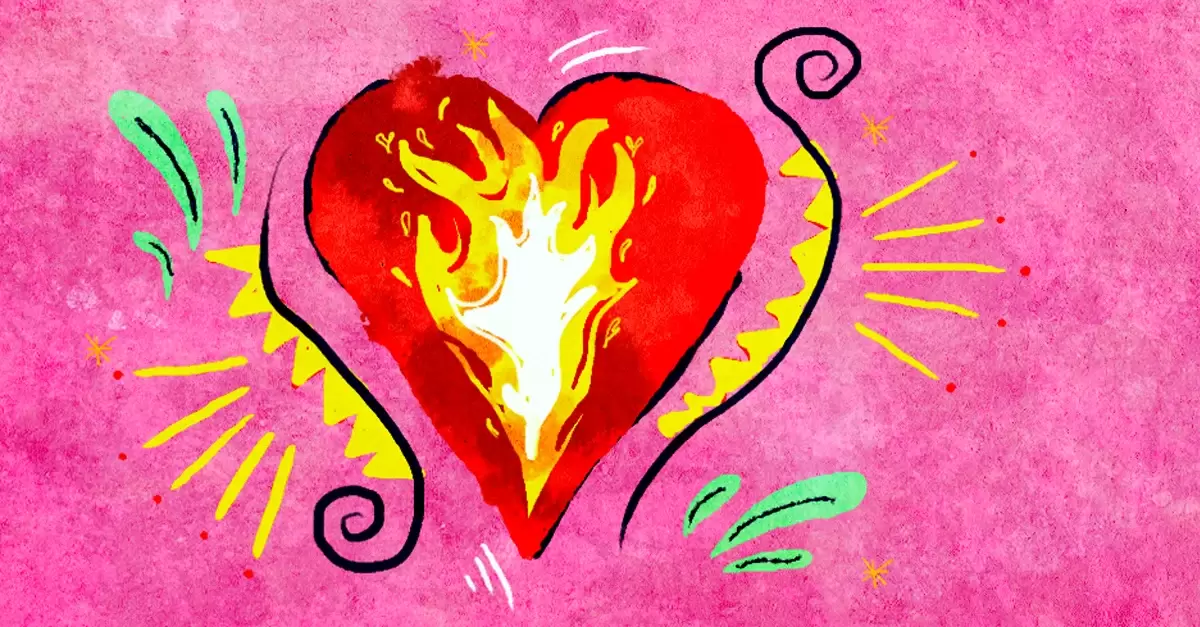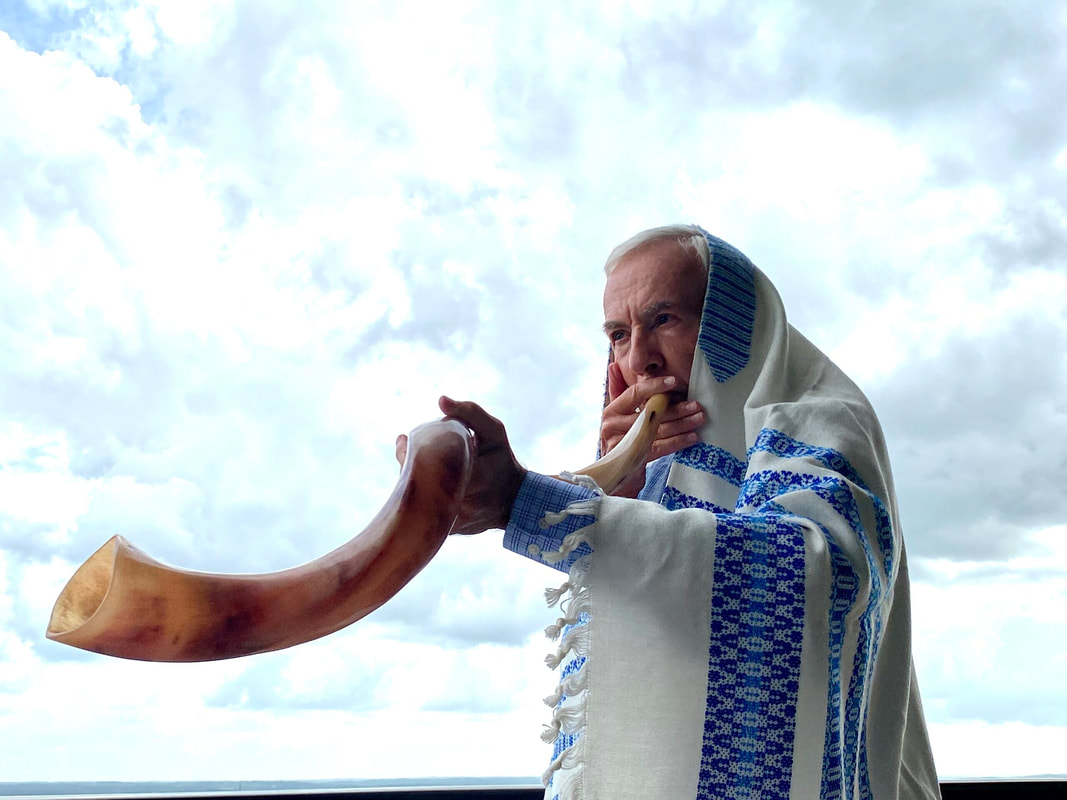|
8/27/2023 Parashat Ki Tavo 5783, 2023: "Ani l’Dodi v’Dodi Li—I am My Beloved’s and My Beloved is Mine"Read Now Rabbi David Etengoff Dedicated to the sacred memories of my mother, Miriam Tovah bat Aharon HaKohane, father-in-law, Levi ben Yitzhak, sister, Shulamit bat Menachem, sister-in-law, Ruchama Rivka Sondra bat Yechiel, Chana bat Shmuel, Yehonatan Binyamin ben Mordechai Meir Halevi, Tikvah bat Rivka Perel, Gittel Malka bat Moshe, Alexander Leib ben Benyamin Yosef, the Kedoshim of Har Nof, Pittsburgh, and Jersey City, the refuah shlaimah of Mordechai HaLevi ben Miriam Tovah, and the health and safety of our brothers and sisters in Israel and around the world. Our parasha contains two terms that are found nowhere else in Tanach, namely, “he’e’marta” and “he’e’mircha:” Today you have declared allegiance (he’e’marta) to Hashem, making Him your G-d, [pledging to] walk in His paths, keep His decrees, commandments, and laws, and to obey His voice. Hashem has similarly declared allegiance to you (he’e’mircha) today, making you His special nation as He promised you. If you keep all His commandments. (Sefer Devarim 26:17-18, translation, The Living Torah, Rabbi Aryeh Kaplan zatzal, with my emendations) In his Commentary on the Torah, Rashi (1040-1105) notes the unique character of these two words, and then proceeds to suggest his own explication: We do not find any equivalent expression in the Scriptures [which might give us a clue to the meaning of these words]. However, it appears to me that [the expression he’e’mir] denotes separation and distinction. [Thus, here, the meaning is as follows:] From all the pagan deities, you have set apart Hashem for yourself, to be your G-d, and He separated you to Him from all the peoples on earth to be His treasured people. (Translation, The Judaica Press Complete Tanach) Onkelos, the first century translator of the Torah into Aramaic, suggests a different understanding of he’e’marta and he’e’mircha. In his view, these terms connote the Almighty’s declaration of love for us, and our love for Him. As such, he translates he’e’marta as “chatavta” and he’e’mircha as “chatvach,” both of which have their basis in the Aramaic word, “chativah,” which may be defined as an object of love. Based on this interpretative translation, the relevant segments of our pasukim would read, “Today you have declared your singular love (he’e’marta) to Hashem… [And] Hashem has similarly declared His unique love (he’e’mircha) to you today…” Fascinatingly, Talmud Bavli, Berachot 6a follows Onkelos’ approach in its exposition of our terms: “Et Hashem he’e’marta hayom v’Hashem he’e’mircha hayom:” The Holy One blessed be He said to the Jewish people: “You have made Me a singular beloved object in the world, and I will make you, as well, a uniquely cherished entity in the world.” [From where do we know that you], the Jewish people declared Hashem to be your most beloved object in the world? As the Torah states: “Listen O’ Jewish nation, Hashem is our G-d, Hashem is one.” (Sefer Devarim 6:4) [From where do we know that] I (Hashem) have declared the Jewish people to be My one precious nation in the world? As the text states: “And who is like Your people of Israel, a remarkable and unequaled nation in the world?” (Sefer Shmuel II, 7:23, all translations my own) While our obligation to love Hashem is clearly found in the words, “v’ahavata ate Hashem Elokecha,” (Sefer Devarim 6:5), explicit statements of His love for us are far more elusive. If we sensitize ourselves to the words of the tefilot, however, we can readily find His message of devotion to us. For example, the second bracha before the recitation of the morning Shema begins with the phrase, “ahavah rabbah,” and states: “With an abundant love have You loved us, Hashem, our G-d…” It concludes with: “Blessed are You Hashem, Who chooses His people Israel with love.” (Translation, Artscroll Siddur) Significantly, the text does not state “Who chose His people Israel with love,” which would reference an ancient act lost in the sands of time. Instead, our Sages formulated the prayer in the present tense, that is, Hashem continuously chooses us in love. Additionally, two explicit statements of Hashem’s abiding love for us are found in the Shmoneh Esrei. In the first bracha, we encounter the phrase, “l’ma’an sh’mo b’ahavah—for His Name’s sake, with love” and, in Birkat Re’tzeh, we find the phrase: “u’tefilatom b’ahavah tikabale b’ratzon—and their prayer accept with love and favor.” In sum, if we but listen to what we are saying in our daily tefilot, we will feel Hashem’s loving presence surrounding us. Little wonder, then, that Megillat Shir HaShirim is the ultimate metaphor for the relationship that obtains between Hashem and our people, for the Holy One blessed be He is our beloved soulmate who unceasingly searches for us in love and devotion. In a world that is so often frightening and alienating, this is a powerful message indeed. With Hashem’s help, may we grow in our love and devotion to Him, and may we always be deserving of His everlasting love. V’chane yihi ratzon. Shabbat Shalom Past drashot may be found at my blog-website: http://reparashathashavuah.org. Please contact me at [email protected] to be added to my weekly email list. *** My audio shiurim on the topics of Tefilah and Tanach may be found at: http://tinyurl.com/8hsdpyd *** I have posted 164 of Rabbi Soloveitchik’s English language audio shiurim (MP3 format) spanning the years 1958-1984. Please click on the highlighted link: The Rav
0 Comments
 Rabbi David Etengoff Dedicated to the sacred memories of my mother, Miriam Tovah bat Aharon HaKohane, father-in-law, Levi ben Yitzhak, sister, Shulamit bat Menachem, sister-in-law, Ruchama Rivka Sondra bat Yechiel, Chana bat Shmuel, Yehonatan Binyamin ben Mordechai Meir Halevi, Tikvah bat Rivka Perel, Gittel Malka bat Moshe, Alexander Leib ben Benyamin Yosef, the Kedoshim of Har Nof, Pittsburgh, and Jersey City, the refuah shlaimah of Mordechai HaLevi ben Miriam Tovah, and the health and safety of our brothers and sisters in Israel and around the world. One of the major shul-based practices of the month of Elul is listening to the clarion call of the shofar prior to the recitation of Psalm 27, “L’David Hashem ori v’yeshi—A psalm of David, The L-rd is my light and my salvation.” The Rambam (1135-1204) notes a number of actions that the sounding of the shofar should ideally engender: Wake up you sleepy ones from your sleep and you who slumber, arise. Inspect your deeds, repent, remember your Creator. Those who forget the truth in the vanities of time and throughout the entire year and devote their energies to vanity and emptiness which will not benefit or save: Look to your souls. Improve your ways and your deeds and let every one of you abandon his evil path and thoughts. (Mishneh Torah, Sefer HaMada, Hilchot Teshuvah III:4, translation, Rabbi Eliyahu Touger) In sum, the shofar’s blast is multidimensional and capable of evoking a variety thoughts and deeds. Then, too, it challenges us to remember the eternal truths of the Torah and eschew “vanity and emptiness which will neither benefit nor save.” The Rambam wrote in the 12th century, and decried those “who forget the truth in the vanities of time and throughout the entire year…” If this was a common problem during his historical period, it is exponentially the case in our pleasure-seeking, digitally focused culture that caters to a public with an unquenchable thirst for that which is scandalous, obscene, and demeaning. What accounts for this endless attraction to the ugliest side of the human condition? I believe our prasha provides us with a strong foundation for answering this question. The first phrase in our Torah portion, “Ki tetze l’milchamah al oivecha—When you go to war against your enemy,” precedes the words: “the L-rd, your G-d, will deliver him [your enemy] into your hands, and you [will] take his captives.” (Sefer Devarim 21:10, translation, with my emendations, The Judaica Press Complete Tanach) The Chasidic masters universally understand the expression, “your enemy,” as referring to the yetzer hara (the evil inclination). Not too surprisingly, the first rebbe to suggest this interpretation was none other than the founder of Chasidut, the holy Rabbi Yisrael ben Eliezer (1698-1760), known to the world as “the Baal Shem Tov.” The Baal Shem Tov notes that even though the verse is speaking about going to war, which necessitates a massive public undertaking, it is nonetheless written in the singular construct (lashon yachid). He opines that this is the case, since “every member of the Jewish people has no greater enemy than the evil inclination.” (This, and the following quotations, Rabbi Aharon Yaakov Greenberg, Itturei Torah, volume VI, page 129; translations my own). The Baal Shem Tov continues his analysis and states, “If you go to war against him [that is, the yetzer hara],” then the Torah promises, that “the L-rd, your G-d, will deliver him into your hands.” Perhaps most powerfully, he interprets the expression, “and you take his captives,” as a further assurance that “even the powers of the evil inclination will be able to be harnessed in the service of Hashem.” Without a doubt, the yetzer hara is the most cunning and corrupting influence in our lives. It intuitively knows “what buttons to push” to lead us away from the Torah and Hashem and coerce us into doing its bidding. Clearly, we must wage an unceasing war against it, for as the Baal Shem Tov said, we have “no greater enemy...” Fortunately, the Mishnaic sage Ben Zoma taught us that it is possible to be a spiritual hero and overcome even our strongest yetzer hara-suffused desires: Who is strong? One who overpowers his [evil] inclination. As is it is stated: “One who is slow to anger is better than a mighty man, and one who rules over his spirit [is better] than one who conquers a city.” (Pirkei Avot IV:1, translation, Rabbi Yosef Marcus) With the Almighty’s help, may we hearken to the shofar’s call and do our best to reject the nearly ceaseless negative influences of our time. In this way, may we harness “even the powers of the yetzer hara…in the service of Hashem.” V’chane yihi ratzon. Shabbat Shalom Past drashot may be found at my blog-website: http://reparashathashavuah.org. Please contact me at [email protected] to be added to my weekly email list. *** My audio shiurim on the topics of Tefilah and Tanach may be found at: http://tinyurl.com/8hsdpyd *** I have posted 164 of Rabbi Soloveitchik’s English language audio shiurim (MP3 format) spanning the years 1958-1984. Please click on the highlighted link: The Rav  Picture: Sefira Lighstone (https://www.sefiracreative.com/blog-1) Rabbi David Etengoff Dedicated to the sacred memories of my mother, Miriam Tovah bat Aharon HaKohane, father-in-law, Levi ben Yitzhak, sister, Shulamit bat Menachem, sister-in-law, Ruchama Rivka Sondra bat Yechiel, Chana bat Shmuel, Yehonatan Binyamin ben Mordechai Meir Halevi, Tikvah bat Rivka Perel, Gittel Malka bat Moshe, Alexander Leib ben Benyamin Yosef, the Kedoshim of Har Nof, Pittsburgh, and Jersey City, the refuah shlaimah of Mordechai HaLevi ben Miriam Tovah, and the health and safety of our brothers and sisters in Israel and around the world. The Torah employs the phrase, “Ki tetze l’milchamah al oivecha—When you go forth to war against your enemy,” twice in Sefer Devarim. The first instance appears in our parasha (20:1), and the second in Parashat Ki Tetze (21:10). In his Commentary on the Torah, Rashi (1040-1105) presents a thought-provoking comment on the phrase, “al oivecha:” “Let them be in your eyes as enemies; have no pity on them, for they will have no pity upon you.” This gloss is midrashically-suffused, and is based upon Midrash Tanchuma, Sefer Devarim 15. Yet, the original language of this passage does not contain Rashi’s formulation, “Let them be in your eyes as enemies,” and states, instead: “Go forth against them as if they are your enemies--tz’u aleihem k’oiveim.” Why does Rashi change the midrash’s language with the additional words, “in your eyes?” After all, it seems that whenever soldiers go to war, they view the opposing army as their mortal adversaries. What, then, is Rashi teaching us? I believe we can answer this question by focusing on another of Rashi’s comments. In the course of his analysis of the pasuk in the Shirah “Hashem is a Master of war; Hashem is His Name,” (15:3) Rashi suggests this explanation of the latter half of the pasuk: Hashem, [denoting the Divine Standard of Mercy,] is His Name - Even when He wages war and takes vengeance upon His enemies, He maintains His behavior of having mercy on His creatures and nourishing all those who enter the world... (This and all Tanach translations, The Judaica Press Complete Tanach with my emendations). This means that Hashem is ever merciful, even when He wages war against His enemies. As His uniquely chosen people, we in turn, through the mitzvah of imitatio Dei, have the obligation to model ourselves, both in our being and actions, after Hashem’s ways. This principle is powerfully presented in a celebrated passage in Talmud Bavli that highlights the Almighty’s acts of rachmanut (mercy) that we are obligated to make our own: Just as Hashem clothed the naked [in the case of Adam and Chava] … so, too, should you clothe the naked. Just as Hashem visited the sick [in the case of Avraham after his brit milah] … so, too, should you visit the sick. Just as the Holy One Blessed be He comforted the mourners [in the case of Yitzhak after Avraham’s passing] … so, too, should you comfort the mourners. Just as the Holy One Blessed be He buried the dead [in the case of Moshe] … so, too, should you bury the dead. (Sotah 14a, translation and brackets my own) This passage is the basis for of one of the Rambam’s (Maimonides, 1135-1204) famous halachic rulings that helps establish the fundamental parameters of Jewish communal living: It is a positive commandment of Rabbinic origin to visit the sick, comfort mourners, to prepare for a funeral, prepare a bride, accompany guests, attend to all the needs of a burial, carry a corpse on one’s shoulders, walk before the bier, mourn, dig a grave, and bury the dead, and also to bring joy to a bride and groom and help them in all their needs. These are deeds of kindness that one carries out with his person that have no limit. (Mishneh Torah, Hilchot Avel 14:1, translation, Rabbi Eliyahu Touger) Rachmanut emerges as a quintessential aspect of the Jewish persona, since in acting mercifully, we emulate our Creator’s actions. This idea is so pronounced that the Talmud Bavli in Yevamot 79a states that there are three markers for someone who claims to be a member of our people, namely, “harachamim, v’habyeshanin, v’gomlai chasadim—they are the merciful, modest ones and practitioners of loving-kindness.” As such, it is literally Jewish nature to act in a merciful manner toward all whom we encounter. I believe we can now understand Rashi’s earlier addition, “in your eyes.” He is teaching us that those with whom we go to war must be viewed as absolute enemies, even though this very notion is antithetical to who we really are, and our humanitarian approach to the nations of the world. Closer to our own time, Prime Minister Golda Meir (1898-1978) gave voice to this idea in her oral autobiography: “When peace comes, we will perhaps, in time, be able to forgive the Arabs for killing our sons, but it will be harder for us to forgive them for having forced us to kill their sons.” (A Land of Our Own: An Oral Autobiography, 1973, edited by Marie Syrkin, p. 242) May we be zocheh to witness the coming of the Mashiach and the fulfillment of Yeshayahu’s vision: “And He shall judge between the nations and reprove many peoples, and they shall beat their swords into plowshares and their spears into pruning hooks; nation shall not lift the sword against nation, neither shall they learn war anymore.” (2:4) V’chane yihi ratzon. Shabbat Shalom Past drashot may be found at my blog-website: http://reparashathashavuah.org Please contact me at [email protected] to be added to my weekly email list. *** My audio shiurim on the topics of Tefilah and Tanach may be found at: http://tinyurl.com/8hsdpyd *** I have posted 164 of Rabbi Soloveitchik’s English language audio shiurim (MP3 format) spanning the years 1958-1984. Please click on the highlighted link: The Rav  Rabbi David Etengoff Dedicated to the sacred memories of my mother, Miriam Tovah bat Aharon HaKohane, father-in-law, Levi ben Yitzhak, sister, Shulamit bat Menachem, sister-in-law, Ruchama Rivka Sondra bat Yechiel, Chana bat Shmuel, Yehonatan Binyamin ben Mordechai Meir Halevi, Tikvah bat Rivka Perel, Gittel Malka bat Moshe, Alexander Leib ben Benyamin Yosef, the Kedoshim of Har Nof, Pittsburgh, and Jersey City, the refuah shlaimah of Mordechai HaLevi ben Miriam Tovah, and the health and safety of our brothers and sisters in Israel and around the world. Our parasha begins with the celebrated words: Behold, I set before you today a blessing and a curse (re’eh Anochi notane lifnaichem bracha u’klalah). The blessing, that you will heed the commandments of Hashem, your G-d, which I command you today; and the curse, if you will not heed the commandments of Hashem, your G-d, but turn away from the way I command you this day, to follow other gods, which you did not know. (Sefer Devarim 11:26-28, this and all Tanach translations, The Judaic Press Complete Tanach) In his commentary on the Torah, Rabbi Avraham Shmuel Binyamin Sofer zatzal (the Katav Sofer, 1815-1871) opines that if we look around us, we will find nations that control other nations, either through out and out force, or by placing them under their sphere of influence. Then, too, there are those nations who are self-governing and free. The Jewish people are different, however, since for most of our storied existence, we have found ourselves at the “mercy” of the general society and, on occasion, we have lived in abject servitude and unimaginable suffering. In stark contrast, the Torah promises us that one day we will rule over the nations of the world and be: “… supreme, above all the nations that He made, [so that you will have] praise, a [distinguished] name and glory…” (26:19). Unfortunately, notes Rav Sofer, there is no middle ground for our people, we are either the “tail or the head of the nations.” (See Sefer Devarim 28:13 and 44) Why is this the case, why do our people, and our people alone, live such an either/or existence? Rav Sofer suggests the following answer: The reason is quite simple. The nations of the world live under mazal (that is, devoid of Hashem’s direction). As such, sometimes this mazal forces them to rise to the top, be in the middle or fall to a lowly level. This is not the case with the Jewish people, we do not live under mazal, rather the Holy One blessed be He [constantly] guides us. Therefore, if we do His will, then we are segulah mi’kol ha’amim—chosen and beloved more than any other nation—for it is for us that the world was created, and we will consequently rule over all other nations. If, however, if we do not perform the will of the Creator, we will go forth as captives in complete misery. (Translation, parentheses and brackets my own) In Rav Sofer’s view, this is precisely why our pasukim begin with the word, “re’eh—behold, look deeply and see:” This word, “re’eh,” is asking us to think deeply about this matter and note, “Anochi notane lifnaichem bracha u’klalah,” which means, either a bracha or a klalah and there is no middle ground between them. This is because they [our forebears, as well as ourselves) were promised that bracha would ensue if they demonstrated loyalty to the Torah, and klalah if they failed to do so. For we are not like the rest of the peoples of the world wherein everything depends upon mazal, rather, the Holy One blessed be He ever surrounds us with His Divine Providence (hashgacha pratit). The Katav Sofer’s penetrating explanation of our pasukim is predicated upon Rabbi Yochanan’s famous question in Talmud Bavli, Shabbat 156a: Rabbi Yoḥanan said: From where is it derived that ain mazal l’Yisrael—there is no [literally] constellation of stars for the Jewish people [and that we live, instead under His hashgacha pratit]? As it is stated: “So says Hashem: of the way of the nations you shall not learn, and from the signs of the heaven be not dismayed, for the nations are dismayed from them.” (Sefer Yirmiyahu 10:2) [This means,] the nations will be dismayed by them, but not the Jewish people. (Translation, The Koren Talmud, Rabbi Adin Steinsaltz zatzal, editor with my emendations) In his commentary on this passage, Rashi (1040-1105) elaborates upon the meaning of, “ain mazal l’Yisrael:” “Through tefilah and merit, he [that is the Jewish people] can change his mazal for the good.” In other words, unlike the nations of the world, we have a dynamic relationship with the Holy One blessed be He that gives us the ability to change the present and future through our heartfelt entreaties (tefilah) and the merit (zechut) we accrue through the performance of the mitzvot. Moreover, when we add teshuvah to tefilah and zechut, we have the grand triumvirate to which Chazal gave powerful voice so long ago: “u’teshuvah, u’tefilah u’tzdakah ma’avirin roah hagezerah—and repentance, heartfelt prayer and charitable donations will remove the evil decree from upon us.” May we see the complete fulfillment of this prayer soon, and in our days. V’chane yihi ratzon. Shabbat Shalom Past drashot may be found at my blog-website: http://reparashathashavuah.org. Please contact me at [email protected] to be added to my weekly email list. *** My audio shiurim on the topics of Tefilah and Tanach may be found at: http://tinyurl.com/8hsdpyd *** I have posted 164 of Rabbi Soloveitchik’s English language audio shiurim (MP3 format) spanning the years 1958-1984. Please click on the highlighted link: The Rav |
Details
Archives
July 2024
AuthorTalmid of Rabbi Soloveitchik zatzal Categories |
- Blog: Rabbi David Etengoff: Parashat HaShavuah
- Sefer Bereishit 5784&5785
- Sefer Shemot 5784&5785
- Sefer Vayikra 5784&5785
- Sefer Bamidbar 5784 &5785
- Sefer Bereishit 5782&5783
- Sefer Shemot 5782&5783
- Sefer Vayikra 5782&5783
- Sefer Bamidbar 5782&5783
- Sefer Devarim 5782&5783
- Sefer Bereishit 5780& 5781
- Sefer Shemot 5780&5781
- Sefer Vayikra 5780&5781
- Sefer Bamidbar 578&5781
- Sefer Devarim 578&5781
- Sefer Bereishit 5778&5779
- Sefer Shemot 5778&5779
- Sefer Vayikra 5778&5779
- Sefer Bamidbar 5778&5779
- Sefer Devarim 5778&5779
- Sefer Bereishit 5776&5777
- Sefer Bereishit 5774&5775
- Sefer Bereishit 5772&5773
- Sefer Bereishit 5771&5770
- Sefer Shemot 5776&5777
- Sefer Shemot 5774&5775
- Sefer Shemot 5772&5773
- Sefer Shemot 5771&5770
- Sefer Vayikra 5776&5777
- Sefer Vayikra 5774&5775
- Sefer Vayikra 5772&5773
- Sefer Vayikra 5771&5770
- Sefer Bamidbar 5776&5777
- Sefer Bamidbar 5774&5775
- Sefer Bamidbar 5772&5773
- Sefer Bamidbar 5771&5770
- Sefer Devarim 5776&5777
- Sefer Devarim 5774&5775
- Sefer Devarim 5772&5773
- Sefer Devarim 5771&5770
 RSS Feed
RSS Feed
